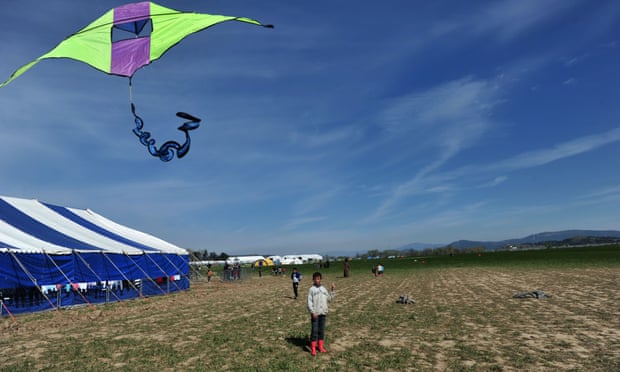Athens says
around 400 taken by bus from Idomeni refugee camp to other sites, as agencies
say no one arrived on Aegean island shores in past 24 hours.
Eight buses transported around 400 refugees
from Idomeni to nearby refugee camps on Friday, police sources said. A dozen
more buses were waiting for migrants reluctant to leave the border, which has
been shut down since earlier this month.
“People who have no hope or have no money,
maybe they will go. But I have hope, maybe something better will happen
tomorrow, maybe today,” said 40-year-old Fatema Ahmed from Iraq, who has a
13-year-old son in Germany and three daughters with her in the camp.
She said she would consider leaving the
squalid Idomeni camp – where people are sheltering even on railway tracks – if
the Greek government decides to give every migrant family “a simple house”.
Those persuaded to board the first buses were mainly parents with children who
can no longer tolerate the difficult conditions.
Janger Hassan, 29, from Iraqi Kurdistan, who
has been at the Idomeni camp for a month with his wife and two young children,
thinks he will probably leave. “There’s nothing to do here. “The children are
getting sick. It’s a bad situation the last two days: it’s windy, sometimes
it’s raining here,” he said. “We don’t have a choice. We have to move,” he
said.
Desperation was evident in the camp. One
tent bore the slogan: “Help us open the border”. A total of 11,603 people
remained at the sprawling border camp on Saturday, according to the latest
official count. Giorgos Kyritsis, spokesman of the SOMP agency, which is
coordinating Athens’s response to the refugee crisis, said the operation to
evacuate Idomeni will intensify from Monday.
“More than 2,000 places can be found
immediately for the refugees that are at the Idomeni camp and from Monday on,
this number can double,” Kyritsis added, pledging to create 30,000 more places
in the next three weeks in new shelters.
Meanwhile, the flow of refugees arriving in
Greece is slowing. Athens on Thursday said no migrants had arrived on its
Aegean islands in the previous 24 hours, for the first time since the
controversial EU-Turkey deal to halt the massive influx came into force at the
weekend.
The agreement, under which all migrants
landing on the Greek islands face being sent back to Turkey, went into effect
last Sunday. Despite the deal, 1,662 people arrived on Monday, but this fell to
600 on Tuesday and 260 on Wednesday.
Πηγή: theguardian.com




Δεν υπάρχουν σχόλια:
Δημοσίευση σχολίου